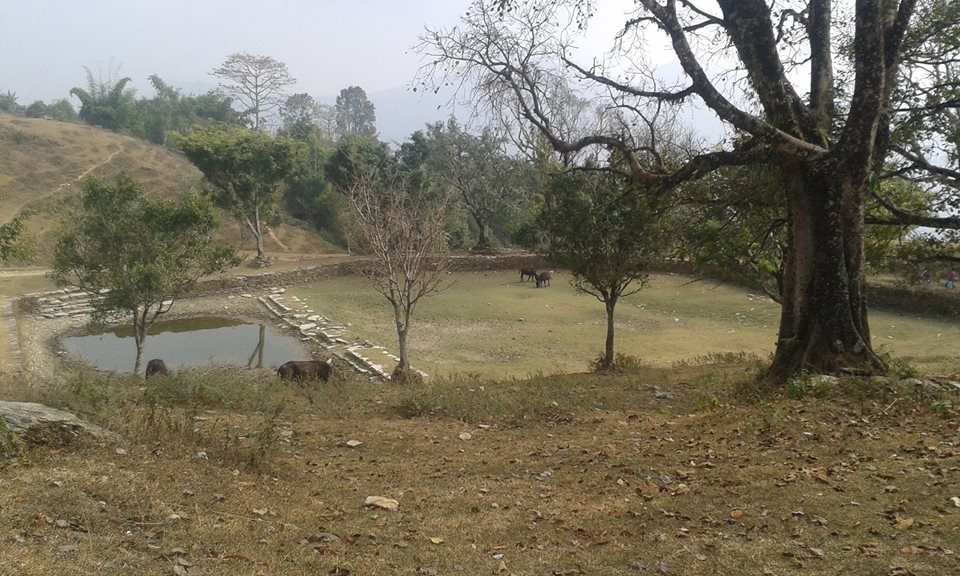Improving Water Security and Resilience in Kaski District, Nepal In Collaboration with Kanchan Nepal

Our collaboration with the local NGO
Kanchan Nepal has assisted them in 'empowering communities with Water,
Sanitation and Health Services’. Despite the high rainfall it receives during
the monsoon, the Kaski District is water-stressed. It is comprised of steep-sided
valleys, primarily composed of limestone (karst); thus, water preferentially
flows underground, making surface runoff collection difficult (Rimal et al
2018).[1]
Providing a reliable supply of drinking water for rural communities through
rainwater harvesting is therefore of vital importance in this district.
Constructing toilets, as we have done in our Nepalese Blue Schools, is also
important, since only 62 % of the population have adequate access to sanitation
in this country (FAO, 2011; WHO/UN-Water, 2014).
Our partner, Kanchan Nepal, has its headquarters in Pokhara, Nepal’s second largest town and a key gateway for many tourists wishing to trek in the Annapurna Range. To date, we have assisted Kanchan Nepal in constructing eight out of a planned ten Blue Schools to the east of Pokhara, within the Kaski District. This has given 757 children access to potable drinking water and hand washing facilities when at school. The rural schools that we have converted into Blue Schools, in collaboration with Kanchan Nepal, are located up to 14 km away from local springs. Accordingly, being able to harvest and store rainwater on school premises frees children (often girls) from the often arduous and time-consuming task of collecting potable water for consumption at school. Additionally, given the sustained and largely unplanned urbanization of Pokhora’s outskirts, the provision of drinking water to rural communities within the Kaski District offers a way of stemming the migration of rural inhabitants towards Pokhora, where the municipal water supply only meets fifty percent of local water demand (Republica, 2014).
Working in Nepal, our Blue Schools project has adopted the local, traditional method of harvesting rainwater by building shallow ponds. As Scott et al observe, the use of multiple small ponds avoids dam construction, which entails the displacement of local populations and the storage of river sediment (2019). Working with Kachan Nepal, we have reconditioned local ponds, restoring these structures to store rainwater and recharge groundwater. The reconditioning of ponds mitigates surface water runoff, by creating multiple sites for rain to pool and then gradually infiltrate the sub-surface. When associated with tree planting, this rainwater harvesting technique offers a holistic means of preventing soil erosion. We included tree planting activities in the Blue Schools we built at the Indrayani, Ramkot and Arunodaya. Our 'a child a tree’ campaign planted 250 trees within these three institutions. The next phase of our engagement in Nepal will see us managing watershed runoff in other areas.
Our experience in collecting rainwater as a safe drinking water source and a resource for crop irrigation at this mid-hills location over the past eight years, and in using grey water to supply garden plots at the schools, gives IRHA an in-depth understanding of rainwater resource management on the micro (watershed) scale. Rainwater harvesting ensures that communities have a secure supply of drinking water, despite annual variations in precipitation volume. It also offers a means of sustainably managing watersheds, to prevent soil erosion.